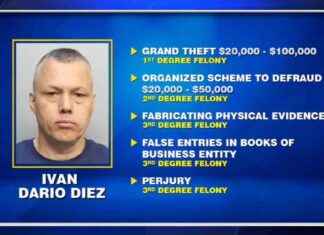The President of China, Xi Jinping, defended this Sunday the zero covid policy sponsored since the beginning of the pandemic during the inauguration of the 20th Congress of the Communist Party (CCP), in which he is expected to renew his position for an unprecedented third term in the country’s modern history.
In the Great Hall of the People, before an audience of some 2,300 delegates from all over the country, the 69-year-old president took the stage to highlight the importance of the congress at a moment that he defined as “critical.” From his almost two hours of speech in a monotone tone, a continuity in the policies implemented in recent years in fields such as politics or economics can be deduced.
In the first part of his speech, in which he reviewed the successes achieved in recent years, Xi defended that in the face of the coronavirus pandemic “we put people and their lives above all else with our tenacious covid-zero policy.” . We have protected people’s health to the greatest extent possible.”
This strategy, based on a strict closure of borders, massive tests and restrictions on movement as soon as a case arises, has damaged the growth of the Chinese economy. But Xi’s words and the comments made in recent days by the state press and some national experts suggest that it will remain in force for the time being.
Likewise, Xi also stressed the “technological advances” in fields such as aeronautics, biomedicine or supercomputers, the country’s “innovation” in its different industries and puffed out his chest when describing the progress of the national economy in the last decade as “historic”, that has allowed him to eradicate extreme poverty from the country.
The second part of the speech focused on outlining the priorities for the next five years. Internally, Xi pointed out that they intend to continue promoting “common prosperity” and “high quality” development and will implement improvements in the distribution of wealth, the educational and health system or access to housing, among many others.
The president also influenced the continuity of two of his star policies in his decade in power: the reform and strengthening of the Army and the fight against corruption, which he described as “cancer.” In these years, his campaign against “tigers and flies” (senior officials and grassroots officials) has punished some two million people and has served to cleanse the ranks of the party of possible enemies and rivals.
Regarding Hong Kong, Xi welcomed the return to order in the streets and pointed out that Beijing must ensure its jurisdiction to ensure that only “patriots” govern the territory. Since the anti-government protests of 2019 and the imposition of the National Security law a year later, the former British colony has seen how the opposition – politicians, media, activists, etc. – is silenced through arrests and convictions, in what many see the further erosion of the “one country, two systems” principle adopted upon its return to Chinese sovereignty in 1997.
But the biggest applause of the morning was when he referred to Taiwan, which Beijing considers an inalienable part of its territory. “In response to separatist activities seeking ‘Taiwanese independence,’ and crude provocations from abroad – a veiled message to the United States – we have fought with determination, demonstrating our skill and strength to safeguard our sovereignty and territorial integrity,” she pointed out.
Xi also assured that the dispute must be resolved “only by the Chinese”, and stressed that his priority is to achieve reunification by peaceful means. “But we will never commit to abandoning the use of force and we reserve the option to take the necessary measures,” he said.
The leader also underscored the rise in global power of China, which does not seek “hegemony” or “expansionism”, and warned of a more unstable international environment. “China must be prepared for strong winds and high waves and even dangerous storms,” ??he added. At no time did he make reference to the war in Ukraine or his relationship with Russia or his president, Vladimir Putin, to whom he is linked by a close relationship cemented during their numerous meetings.
The CCP congress will be held throughout the next week in an armored capital to prevent an outbreak of coronavirus or the appearance of signs of discontent. At its conclusion next weekend, the composition of the new Standing Committee, the pinnacle of Chinese power, will be announced. With no apparent successor in sight, Xi is expected to renew for a third term as he aspires to put his loyalists in top jobs.
Among the figures absent from the opening meeting, former President Jiang Zemin, 96, stood out, whose faction has been one of the main victims of the anti-corruption purges undertaken in recent years. What was present was Xi’s predecessor, Hu Jintao, or former Vice Prime Minister Zhang Gaoli, who a year ago was the subject of a notorious scandal after being accused of sexual abuse by the tennis player Peng Shuai (he later retracted and said he had been misunderstood) .
The appointment, which comes at a time of upheaval due to the war in Ukraine and a slow economy, will also serve for the delegates present to establish the “ideological and political orientations” of the PCCh for the next five years.








